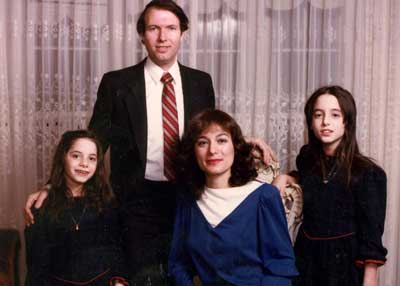The so-called Mafia Cops corruption case swerved yet again into the unforeseen — and the surprising — as a federal judge exonerated one defense lawyer of incompetence charges yesterday, even as he briefly threatened to arrest another for his absence from court.
The first decision by the judge, Jack B. Weinstein of Federal District Court in Brooklyn, effectively put to rest charges that the first lawyer, Bruce Cutler, bungled the defense of his former client, Louis J. Eppolito, a retired New York detective.
The threat to arrest the second lawyer, Edward Hayes, was dropped after Mr. Hayes arrived in court 15 minutes after Judge Weinstein’s deadline, having just returned from Florida, where he was visiting his mother.
This unusual postscript to the murder case began in April, only days after a jury found Mr. Eppolito guilty of taking part in at least eight murders for the mob. Mr. Eppolito filed a motion to have his conviction overturned, accusing Mr. Cutler of botching the job, and subpoenaed him to appear in court in his own defense.
Yesterday, Mr. Cutler did just that, taking questions from Joseph Bondy, his former client’s new lawyer, on everything from his courtroom style (the words “eviscerate” and “pulverize” came up) to his decision not to let his former client testify.
Mr. Cutler said that if Mr. Eppolito had testified, the prosecution would have buried him in evidence. He added that he would have tackled Mr. Eppolito — no mean feat, since Mr. Eppolito has a 54-inch chest — to keep him from taking the stand.
After two hours of intense interrogation, Judge Weinstein cut the hearing short, ruling not only that Mr. Cutler had put on a “professional” defense, but that Mr. Eppolito’s “immorality and lack of credibility” had led the judge “to ignore his testimony on any point.” The immediate result of this was that Mr. Cutler — apparently surprised and much relieved — got to go home, more or less unscathed, on what could have been a bloody day in court.
Judge Weinstein cut the hearing short before the government had even cross-examined Mr. Cutler — in essence saying that its point (that Mr. Cutler was, in fact, a fine lawyer) had already been made.
There was good reason for Judge Weinstein to be critical of Mr. Eppolito, who took the stand Friday and presented a case that was riddled with contradictions and with the strange tale of how he had never come forward to tell the court he wished to testify because he was afraid — of the judge.
There was less apparent reason, however, for the judge to have given Mr. Cutler such a glowing review.
Mr. Cutler’s defense of Mr. Eppolito had been unorthodox, to say the least, rising in crescendo from an opening argument that attacked the “spiritual and moral cancer” that had recently descended on the mob to a rambling summation that mixed references to everything from ducks to coyotes, from Crazy Horse, the warrior chief, to “Bridge on the River Kwai.”
Mr. Bondy did not attack him for such digressiveness yesterday, however, focusing instead on why Mr. Cutler had failed to call witnesses or why he had never showed the jury that other police officers might have given secret information to the mob — a crime for which his client had been charged.
Mr. Bondy also focused on the stormy bond between the two, particularly on Mr. Cutler’s alleged habit of cutting Mr. Eppolito off.
On the stand yesterday, Mr. Cutler proved to be an able advocate for his latest client: himself.
He declared himself a “trial man,” a lawyer who did not “play footsie” with his clients or stoop to holding hands. He may have told Mr. Eppolito not to talk to him or pass him notes on occasion, he said, though he averred that every morning at the Park Plaza Diner he spoke with his client, after he visited the men’s room and had some orange juice, a banana and a half-cup of coffee, his typical morning meal.
Judge Weinstein did not officially rule on Mr. Eppolito’s motion, though he seemed to signal his intentions that it would fail.
Mr. Eppolito’s co-defendant, Stephen Caracappa, has filed a similar motion against his own former lawyer, Edward Hayes, but that motion may be headed for defeat as well. The judge could rule officially as early as today.
The problem is that Judge Weinstein has ruled that Mr. Hayes cannot be called by Mr. Caracappa unless Mr. Caracappa takes the stand himself. His new lawyer, Daniel Nobel, has said that Mr. Caracappa is almost certain not to testify against Mr. Hayes.
Mr. Hayes was, nonetheless, called by Mr. Bondy — which led to the brief threat of his arrest. Counter to Judge Weinstein’s order, Mr. Hayes was not in court yesterday — he was visiting his mother in Miami — and the judge ruled that if he did not appear by 3:15 p.m., a warrant would be issued in his name.
Shortly after 3:30, Mr. Hayes showed up, fresh from Florida in a pink polo shirt, a windowpane blazer and a pair of teal socks. He took the stand and briefly testified that Mr. Cutler and Mr. Eppolito had had “arguments,” but that despite the client’s accusations, they had met on numerous occasions during trial.
Mr. Cutler looked relaxed when his time at the hearing was done. He did, however, seem a little worried when it looked as if his partner might end up in jail.
“Who’s going to represent Eddie?” he mused out loud, poised to leave the court. “You know, I better wait.”.

